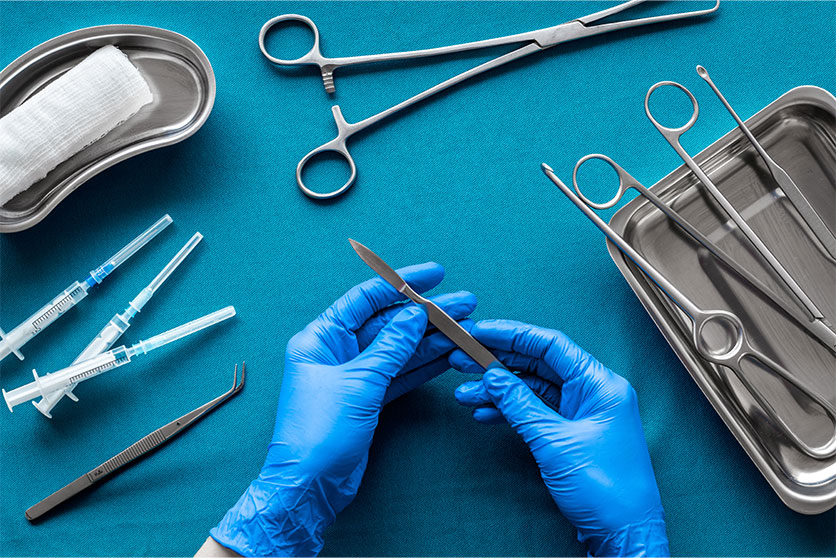
When it comes to medical procedures, surgery is often seen as a last resort—reserved for cases where other treatments have failed or when time is of the essence. Patients trust their surgeons and the medical team to perform these procedures with precision and care. Still, unfortunately, surgical errors can and do occur. Surgical errors can have severe consequences for patients, ranging from extended recovery times to permanent injuries and even death. While not all surgical complications result from malpractice, it is essential to recognize when a surgical error has occurred and what steps to take if you suspect you are a victim.
What are Surgical Errors?
Surgical errors, also known as “never events” in the medical community according to the Agency for Healthcare Research and Quality, are mistakes that should never happen during surgery. These errors are typically preventable and result from lapses in communication, negligence, or inadequate preparation. To determine if you might be a victim of medical malpractice due to a surgical error, you need to understand the common types of surgical mistakes:
1. Wrong Site Surgery
One of the most alarming surgical errors, wrong-site surgery occurs when a surgeon operates on the wrong part of the patient’s body. This may involve the wrong organ, limb, or shockingly, even the wrong patient entirely. Surgical markings, checklists, and clear communication protocols are in place to prevent such errors.
2. Surgical Instrument Retention
Leaving foreign objects, such as surgical instruments, sponges, or needles, inside a patient’s body after surgery is a grave error. These retained objects can lead to infections, internal injuries, and the need for additional surgery to remove them.
3. Anesthesia Errors
Anesthesia is a critical aspect of surgery, and errors in administering anesthesia can lead to severe complications. These errors might include administering too much or too little anesthesia, failing to monitor the patient’s vital signs, or using the wrong type of anesthesia.
4. Nerve or Organ Damage
Surgeons must navigate delicate tissues and organs during surgery. Damage to nerves, blood vessels, or other organs can occur due to negligence or insufficient skill, resulting in long-term pain, dysfunction, or disability.
5. Infection
Post-operative infections can develop when proper sterilization procedures are not followed or surgical wounds are not adequately cared for. Infections can significantly prolong recovery and pose serious health risks.
6. Medication Errors
Administering incorrect medications or dosages during surgery or recovery can adversely affect a patient’s health. This might involve allergies, drug interactions, or medication mix-ups.
7. Lack of Informed Consent
Patients have the right to be informed about the risks and benefits of a surgical procedure and to provide informed consent. Failure to obtain proper informed consent can be considered a surgical error.
How to Determine If You Are a Victim
If you or a loved one has undergone surgery and you suspect that a surgical error occurred, there are steps you can take to determine if you are a victim of medical malpractice:
1. Gather Your Medical Records
Collect all relevant medical records, including surgical notes, post-operative reports, and any radiographic studies (x-rays, CT scans, MRIs – in other words, all radiographic studies). In addition, gather any documented communication between healthcare providers regarding your surgery. These documents can provide crucial evidence in your case.
2. Consult Another Medical Professional
Seek a second opinion from a different healthcare provider to assess the extent of any complications or injuries resulting from your surgery. Their expert opinion can help establish whether a surgical error occurred.
3. Document Everything
Keep a detailed record of your symptoms, pain levels, and any communication with healthcare providers regarding the surgical error. Documenting your experiences can strengthen your case.
4. Act Promptly
Medical malpractice cases often have statutes of limitations, meaning there is a limited time frame within which you can file a surgical errors lawsuit. It is essential to act promptly to protect your legal rights.
5. Consult a Medical Malpractice Attorney
Contact an experienced surgical errors lawyer who can review your case and guide you on the appropriate legal steps.
Not All Complications Are Surgical Errors
It’s important to note that not all surgical complications result from surgical errors or medical malpractice. Surgery inherently carries risks, and unexpected complications can arise even when healthcare providers follow all standard procedures and protocols. However, if you suspect that negligence or preventable mistakes played a role in your surgical complications, you should explore your legal options.
How Medical Malpractice Attorneys Can Help
Medical errors in healthcare can have devastating consequences, and it’s essential to take action if you believe negligence or preventable mistakes played a role in your surgical complications. Remember that not all surgical complications are the result of surgical malpractice, but if you believe you are a victim of malpractice, it is important to seek legal representation from a medical malpractice firm. An experienced attorney can help you understand your legal options and hold the responsible parties accountable for their actions. In addition to seeking legal recourse, working with healthcare providers to ensure you receive the appropriate medical care and support is essential.
To schedule a free consultation, call us at 317-566-9600 (Indianapolis), 765-865-9300 (Kokomo), or 812-566-2600 (Bloomington), or complete our online inquiry form to schedule an appointment* with one of our health professional attorneys to review your case. We hope to hear from you if you were harmed through medical treatments or neglect. We have offices in Indianapolis, Kokomo, and Bloomington to serve you.
*Free consultation; no retainer fee. You don’t pay a fee until we obtain a settlement for you. All attorney fees are based on the amount of your recovery.
